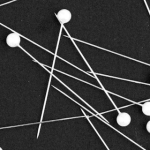The pandemic has boosted the already high volume of work for many patent attorneys, who need both technical expertise and legal skills. However, the profession has always found it hard to acquire talented individuals, and Covid has only increased the difficulties in hiring and developing patent attorneys.
Part of the challenge is that the technology industry is increasingly snapping up LL.M. talent to work in areas such as electric vehicles and data analytics.
For top law school graduates there is an expansion of career opportunities in-house at the tech giants and at patent law firms, which are busier than ever during the pandemic because of advances in vaccines and other technologies.
“Patent attorneys have had plenty of work during the past 18 months,” says Michael Meurer, professor at Boston University School of Law, who adds that in-house attorneys are increasingly required to understand patents. “Training in IP law is essential for business lawyers now that information products and knowledge workers are so important in modern economies,” he says.
IP Law often seen as a niche field
The problem is that awareness of patent law as a career remains quite low in law schools, as it’s seen as a niche, technical field. Raising the profile of the profession is important because most patent law firms hire graduates for technical expertise in science or engineering and then acquire legal training and qualifications on the job.
Meurer points out that a science or engineering degree is required for admission to the US Patent Bar. However, a top patent attorney also needs core legal skills. “Patent litigators must excel at complex litigation,” he says. “Patent prosecutors, who submit patent applications, must excel at drafting applications.”
This has led to a rush of demand for specialist law school degree programs in patent law and the wider field of intellectual property. Several leading law schools offer such courses, including Duke Law with its Intellectual Property, Science and Technology Law Certificate. GW Law offers an LL.M. in Intellectual Property. As does Edinburgh Law School in the UK.
Uma Suthersanen, professor of IP law at Queen Mary, University of London, points out that patent lawyers need a broad set of legal skills and technical expertise. “Even with corporate litigation, where the emphasis is on patents, there are always related claims such as trade secrets and designs,” she says.
“Moreover, those with comparative knowledge are in higher demand, as the emphasis shifts from national to international litigation and business advice,” she adds.
Queen Mary offers the Intellectual Property Law LL.M. On the course, students scrutinize the policies affecting intellectual property and technology law, delving into a range of topics involving the protection of inventions, products, trademarks, creative works and more. Nearly 90 percent of the students end up in intellectual property related employment when they graduate.
IP Law can lead to strong post-LL.M. careers
In general, patent and IP law LL.M. programs have a strong track record of career outcomes for international lawyers. “Many of our graduates return to their home counties to work at major law firms and IP companies,” says Maureen Tracy, director of BU Law’s LL.M. in American Law Program, which prepares foreign lawyers for the challenge of global practice.
“IP in other parts of the world is not nearly as developed as in the US, so our graduates are eager to deepen their understanding,” she says. “When they return home they have gone on to work for prestigious companies and law firms.”
At BU Law, more than half of all LL.M. students take at least one class on intellectual property, and Tracy says this academic specialism is a big draw for prospective students. “Many apply to the law school with candid stories in which their IP rights have been infringed,” she says. “Many of our students see this field as both an important and interesting path, which is in its infancy in many parts of the world.”
Ann Bartow, director of the Center for Intellectual Property at Franklin Pierce School of Law in the US, agrees that demand for patent law classes is high. “We live in a constant state of innovation, from biotechnology to communications,” she says. “The development of new technology brings a growing need for attorneys who can help protect and advance those innovations.”
The Franklin Pierce school offers the Intellectual Property LL.M. degree and graduating students enjoy job opportunities around the world at law firms, government agencies, nonprofits, and companies of all sizes.
“We see more students interested in a broader variety of intellectual property topics,” says Bartow. “As technology changes, so do the needs of our students, and the needs of employers. We have students now interested in blockchain technology and data privacy, for example. As the global economy grows, so does the need for experts in IP.”










